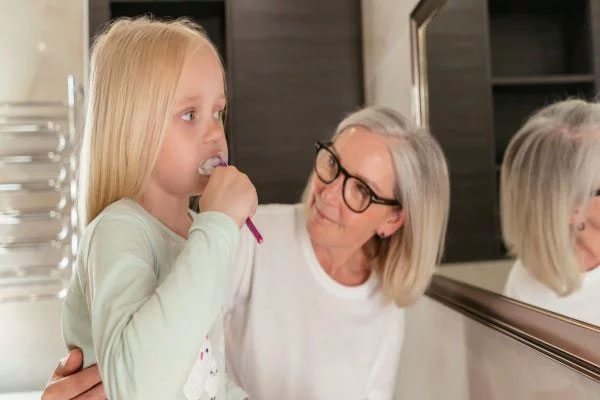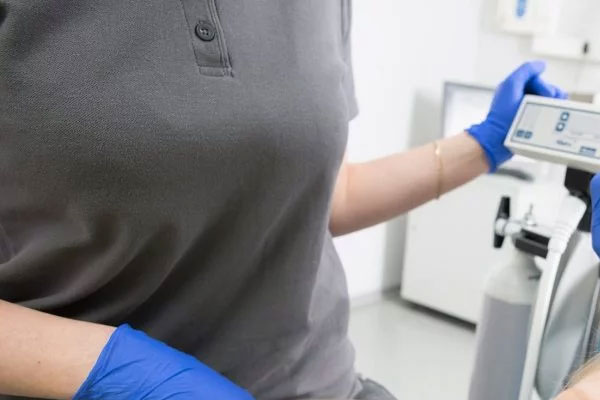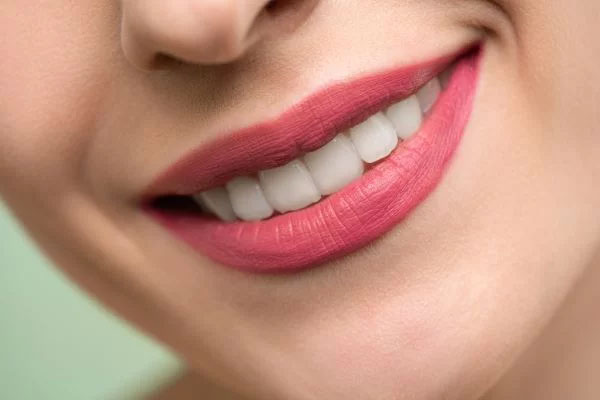To maintain proper oral health for your kids, you’ll need a well-planned dental routine that’s also fun. There are several simple tips that can help make oral care fun for kids and parents alike. Listed below are 5 tips to get your kids to brush and floss and let them be in charge.
How Important is Dental Hygiene for Kids?
Teaching your children, the value of proper dental hygiene in the early stages can help you establish a dental health routine that will last a lifetime. Good dental hygiene and a well-balanced diet are your first line of defense against potential problems, such as cavities and gum disease. Your kid’s overall health largely depends upon their dental hygiene. Strong oral care habits make it easier for your kid to eat and talk. Poor oral care can cause oral inflammation, infection, tooth decay, and numerous other problems.
Why Don’t Kids Like to Brush and Floss?
Well, the simple answer is – they’re kids! Why should they like anything that gets in their way and they don’t understand fully? Think about whether you enjoyed regular nighttime brushing as a kid? Did Calvin like his bedtime? No, right? Kids are known for being fussy when it comes to personal health and hygiene. From eating their vegetables to having their shower, they often need extra motivation to complete their mundane jobs. Any parent can instantly affirm that brushing their children’s teeth is a big task. It could be due to the fact that establishing the regimen of teeth brushing is a standard part of bedtime for lots of families.
How To Protect Your Child’s Teeth?
Before discussing ways to get your kids to brush and floss, let’s take a look at some of the ways your baby’s teeth can be protected.
1. Good Dental Habits
Teaching good dental habits is the most reliable way to protect children’s dental health. However, we must remember that they are young and inexperienced, so proper monitoring is required to ensure that their brushing technique removes plaque which can lead to tooth decay. Also, keep your eyes peeled for any brown or white spots, which might be a sign of early tooth decay.
2. Brushing
As soon as your child has their first tooth, you should help them brush their teeth twice each day. Use a smear (size of a grain of rice) of fluoride toothpaste on a toothbrush with soft bristles. There are a lot of toothbrushes that tackle the unique needs of children of different ages. It makes it simple to pick one that’s proper for your child.
3. Amount of Toothpaste Used
At three years old, you can start using fluoride toothpaste, which is essential to help prevent cavities. If your child does not enjoy the toothpaste’s taste, consider trying a different flavor. Also, make sure that they do not swallow the toothpaste, which can cause several other issues.
4. Motion of Brushing
Contrary to popular opinion, the direction and motion of brushing really do not matter. What truly matters is that the kids’ teeth are thoroughly cleaned. They need to be brushed from all sides and inside and out.
5. Avoid Too Much Sugar
Diet is a huge part of your child’s dental hygiene routine. Keep an eye on their sugar intake. Cut down on the ice cream, chocolate and fruity juices even if they turn their puppy-eyes on you. Too much sugar causes cavities and other issues in their overall health.
5 Ways to Get Your Kids Brushing and Flossing
As dental practitioners, we don’t see our patients every day, so it is not possible to provide dental hygiene tips directly on a daily basis. However, we can give a few quick tips to help make the dental care routine a little easier for both kids and their parents.
i) Make a Game Out of Kids Dental Hygiene
Develop an oral hygiene game and use it to drive attention toward your routine. Many children find that competition is a strong motivator. While the prospect of dental decay may not be effective in engaging them to brush and floss properly, the prospect of winning an ongoing competition with mom and dad might be a little bit different.
ii) Speak like They Do
Periodontal disease, gingivitis etc. are words that won’t worry kids. Talking their language would be the way to go about it. Depending on the age of your child, you may want to talk about gummy hurt? Or teeth bugs?
iii) Encourage an Electric Toothbrush
Kids have short attention spans and no interest in boredom or struggle. Electric toothbrushes can lessen the anxiety kids feel when brushing their teeth manually. It can also make them feel more important and allow the experience to be more interesting and enjoyable.
iv) Let Them Do Their Thing
Small decisions bring great joy to kids. Allowing your child to choose their own toothbrush, toothpaste and floss might make it easy to do their brushing and flossing later at home.
v) Brush and Floss with Your Kids
Kids almost always look up to and try to mimic their parents. So, brushing and flossing with them will help develop a good dental routine by just pairing up with you daily.
Some More Tips to Make It Fun.
The below-mentioned tips can help simplify things a bit more.
- Read them books or watch short videos that talk about dental hygiene. Remember to use child-friendly language
- Rewards them for maintaining good oral health. Avoid sugary treats – encourage apple slices, or something they have been longing for a while
- Plan a fun activity around your child’s dental visits
- While they are brushing or flossing, play their favorite songs and dance along even if you have two left feet 😊
Final Words
Your child’s dental hygiene is very important for their overall health in the long run. Dr. Beena George Dentistry cares for your children’s dental health and we highly recommend that you contact us for regular dental checkups. You will receive excellent dental care in a safe environment. Contact us today to know more!



